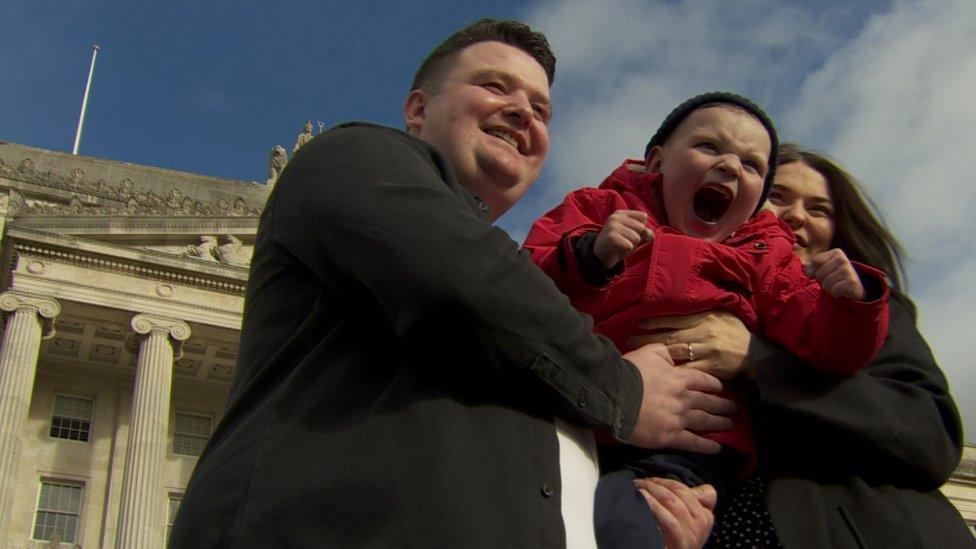Organ donation: Dáithí's Law set for Commons progress
- Published
Watch the moment Dáithí hears that the law named after him is to be pushed through at Westminster
New organ donation laws for Northern Ireland will progress this week after a last-minute intervention by the UK government, BBC News NI has learned.
Dáithí's Law, named after a boy in need of a heart transplant, was delayed due to the political stalemate at Stormont.
But an amendment will be made to a Westminster bill in the coming days to ensure the new opt-out system is implemented.
Dáithí Mac Gabhann's father Máirtín said it was an "emotional day".
He said he "roared" with excitement at Northern Ireland Secretary Chris Heaton-Harris, who rang him late on Sunday night to confirm the government's move.
Six-year-old Dáithí celebrated by singing: "Dáithí's Law is going through!"
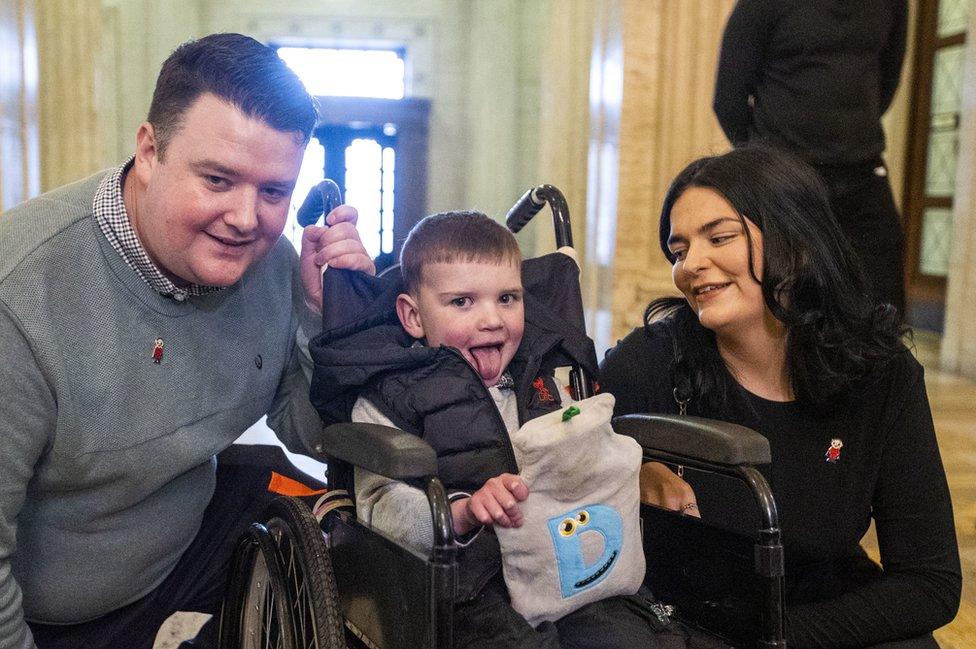
Máirtín Mac Gabhann (left) is proud of his family's campaign to change organ donation law in Northern Ireland
The family and Northern Ireland politicians had been urging Westminster to step in.
The development had come "a bit out of the blue", said Mr Mac Gabhann, who added: "Our Dáithí is changing things for the better."
He said his family would travel to London on Wednesday to watch the debate on the bill.
"It's an extremely emotional day for our family after everything we have been through the past few weeks," he said.
"We feel as though we have had to again move mountains to achieve this and we are very proud of ourselves and of Dáithí."

What is Daithi's Law?

Northern Ireland is the only part of the UK where an opt-out organ donation system is not in place.
Dáithí's Law was introduced in the Stormont assembly in 2021 and passed its final stage in February 2022.
It would mean all adults in Northern Ireland would be considered a potential organ donor after their death unless they specifically stated otherwise.
But last month it emerged that additional legislation was needed to specify which organs and tissues were covered under the opt-out system.
Read more: What is Dáithí's Law and why has it been delayed?

Mr Heaton-Harris said the government's intervention was an "exceptional" case and was being done "in recognition of just how important this issue is".
He said that legislative decisions such as this "should be being taken by locally-elected decision-makers" at Stormont.
He had previously said it would take too long to deal with the issue in Parliament, insisting it remained a matter for the Northern Ireland Assembly.
However the legislation could not be passed at Stormont due to the Democratic Unionist Party's (DUP) boycott of the power-sharing institutions over its protest against post-Brexit trade rules known as the Northern Ireland Protocol.
With Dáithí's Law having been prevented from proceeding at Stormont, the DUP, the SDLP and the Alliance Party were trying to push it through Westminster instead.


This move by the government comes as a surprise.
For weeks Chris Heaton-Harris was saying that Dáithí's Law was an issue to be dealt with at Stormont.
But now he has set a precedent by taking it on at Westminster.
That could mean he faces calls to act on some of the other big issues that have been stalled due to the devolution deadlock.

A DUP amendment - co-signed by the other parties - aimed to change the Executive Formation Bill, external, a piece of legislation being moved by the government which would delay the requirement for another assembly election if a Stormont executive cannot be formed.
However that was unlikely to be successful as the bill's subject matter - or scope - is very narrow and there were concerns it would not be accepted by the Commons Speaker's office when the bill is debated by MPs on Wednesday.
Now it is understood the government is tabling the amendment to the bill in its own name - a significant move that is thought to have the Speaker's backing.
Unlike amendments tabled by opposition MPs, it is rare that government amendments are rejected by the Speaker's office.
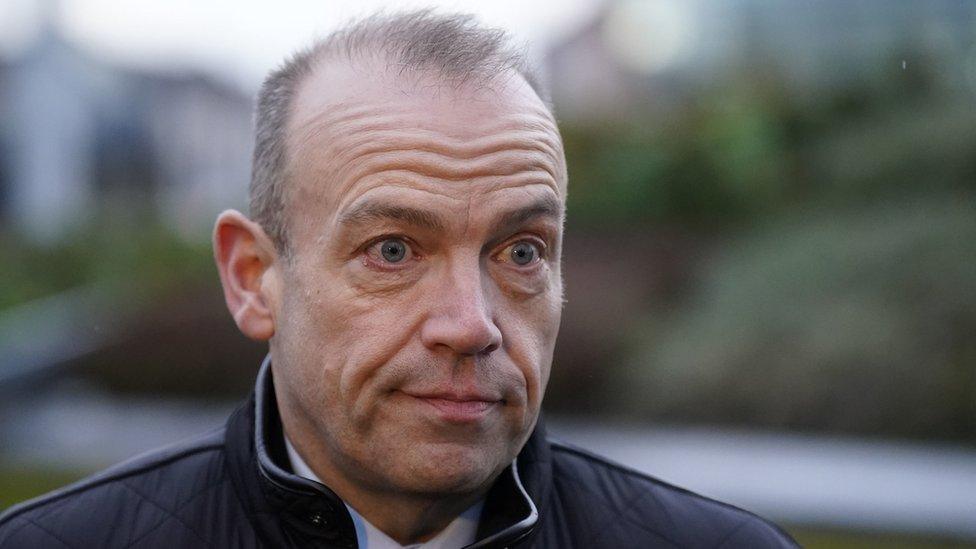
Chris Heaton-Harris says he has made an "exceptional" case in intervening for Dáithí's Law
DUP leader Sir Jeffrey Donaldson said it was "regrettable" the government had not made its move sooner.
"Some sought to use this important issue as a bargaining chip rather than immediately legislating in the House of Commons," he said.
Michelle O'Neill, Sinn Féin's deputy leader, congratulated Dáithí and his family on their "steadfast determination".
"They never gave up and have given hope and inspiration to the many, many people on the organ donation waiting list," she said.
The bill could complete all of its stages in Parliament by 6 March.
There would then be a lead-in time of three months before the opt-out system could effectively begin in Northern Ireland, meaning it could be in place by the start of summer.
Stormont's Department of Health had initially planned for a timetable of spring 2023.
BBC News NI has asked the Northern Ireland Office for details of the amendment.
Fearghal McKinney, the head of British Heart Foundation in Northern Ireland, said it was "fantastic news".
"It is a testament to the dedication and commitment shown by the Mac Gabhann family and all those who have campaigned for so long to see this potentially life-saving legislation in place," said the charity boss.
- Published20 February 2023

- Published14 February 2023
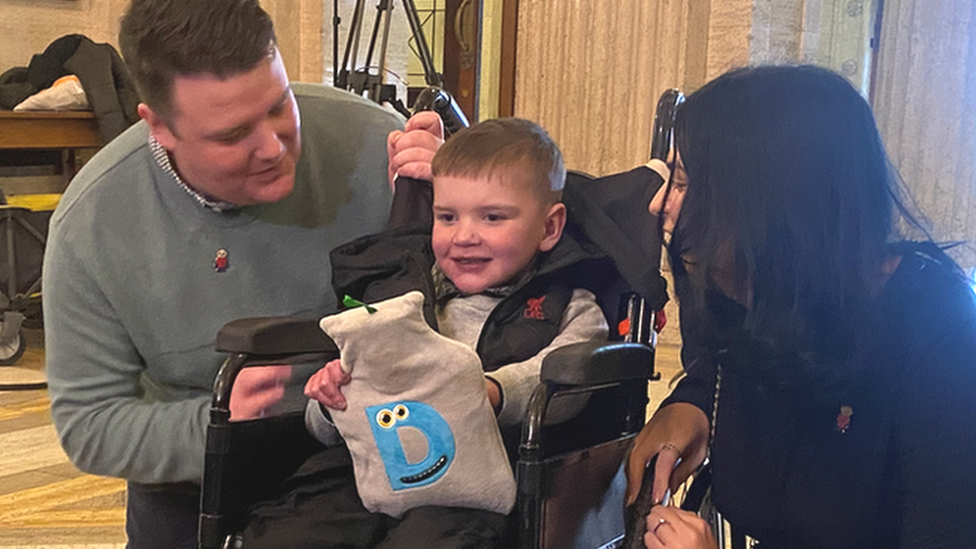
- Published13 February 2023
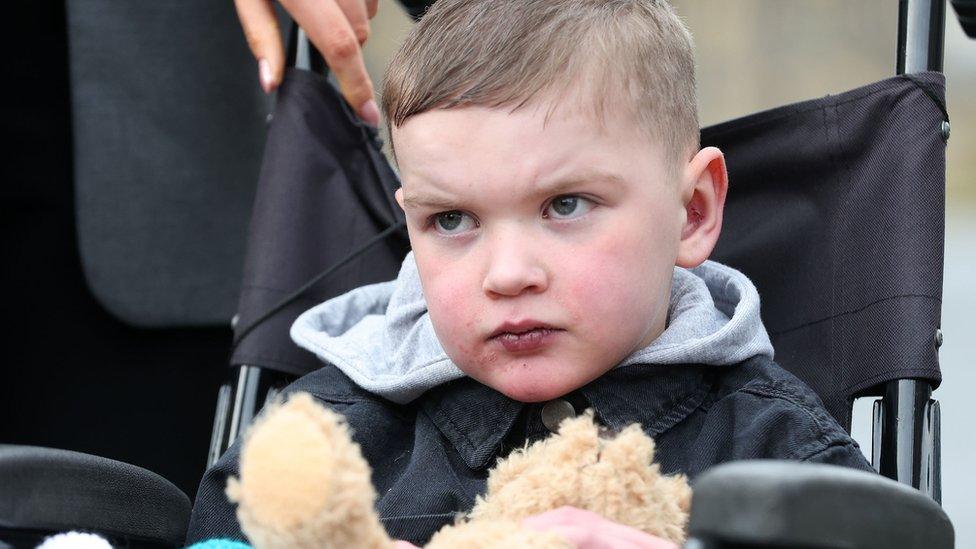
- Published8 February 2022
